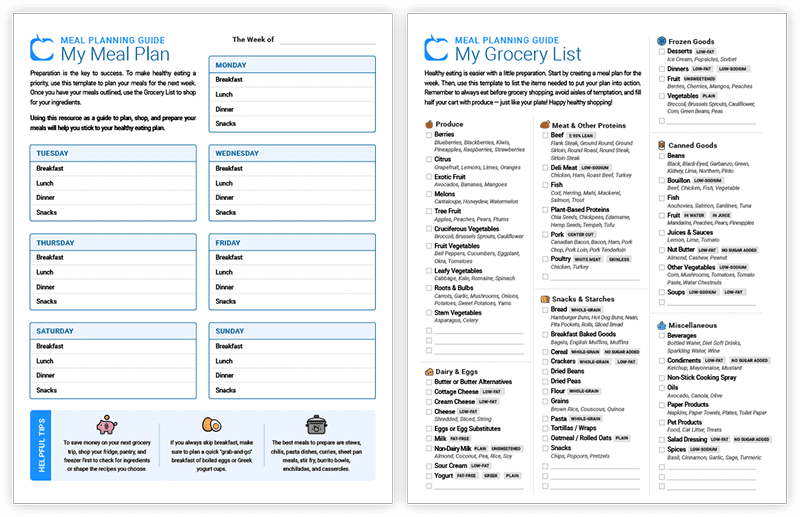Planning your meals for the week can be beneficial for saving time, reducing stress, and maintaining a balanced diet. To create the perfect guide, inventory your pantry and make a shopping list, consider your schedule for each day, balance your meals with all food groups, add variety, plan for leftovers and healthy snacks, choose affordable options, prep ahead of time, and use meal planning tools such as templates or apps. Additionally, be flexible to accommodate unexpected events or changes in plans. Following these tips can make meal planning easier and more enjoyable.
The Perfect Guide to Planning Your Weekly Meals
Creating a weekly meal plan can seem daunting, but it can save time, reduce stress, and ensure a balanced diet. With the following tips, you can create the perfect guide to planning your weekly meals.
1. Get organized
Before planning your meals, take inventory of your pantry, fridge, and freezer. This way, you can use up ingredients you already have on hand and reduce waste. Additionally, create a shopping list of ingredients you need for the week.
2. Consider your schedule
When planning meals, take into account your schedule for each day. If you have a busy day coming up, plan for make-ahead or slow cooker meals. If you have a day where you have plenty of time, try a more complex recipe.
3. Keep it balanced
Ensure that your meals are balanced, including all food groups. This can be done by planning one protein, one starch, and two to three vegetables or fruits for every meal.
4. Variety is key
Avoid boredom by incorporating variety in your meals. Add new recipes, various cooking methods, and different flavors to keep meals interesting.
5. Plan for leftovers
Plan to make extra portions of meals to store in the fridge or freezer for leftovers. This way, you have meals prepared for busy days or last-minute plans.
6. Don’t forget snacks
Plan for healthy snacks to have on hand, such as cut-up fruit, vegetables, or nuts. This can help prevent overeating during meals and provide energy throughout the day.
7. Choose affordable options
Keep your grocery budget in mind when planning meals. Choose affordable options, such as in-season produce, bulk items, and frozen vegetables.
8. Prep in advance
Set aside time at the beginning of the week to prep ingredients, such as cutting up vegetables or marinating meat. This can save time during the week and make meal preparation easier.
9. Use a meal planning template or app
Use a meal planning template, such as one provided online or create your own. Alternatively, use a meal planning app, such as Mealime or FoodPlanner, to simplify the process.
10. Be flexible
Be flexible with your meal plan, as unexpected events can arise. It’s okay to switch meals around or change plans on the fly.
In conclusion, planning your meals can save time, reduce stress, and ensure a balanced diet. By staying organized, considering your schedule, balancing your meals, adding variety, planning ahead for leftovers and snacks, choosing affordable options, prepping in advance, using meal planning tools, and being flexible, you can create the perfect guide to planning your weekly meals.
